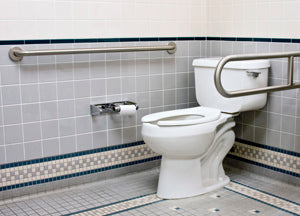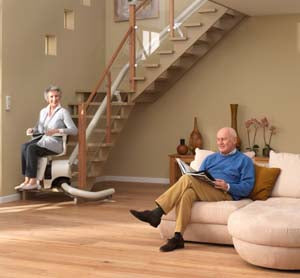You may wish to consider moving your elder loved one into your home. For some people, this is an ideal alternative to moving them into a nursing home.

“If there is a decline in cognitive abilities as a result of Alzheimer’s disease or a related dementia, or a shift in a medical condition that requires increased care, there is clear cause to be concerned about your parent’s welfare. It may be time to consider a move to a safer environment” (Home Away from Home: Relocating Your Parents, 2012). You may wish to consider moving your elder loved one into your home. For some people, this is an ideal alternative to moving them into a nursing home.
If this is a decision you make, then it will be important to make changes in your house to ensure it is safe and comfortable for your loved one. Some rooms, like the kitchen and bathroom, can be especially dangerous, especially or elderly individuals with disabilities or who have mobility problems. Here are a few of the changes you should consider making:

Properly Equip the Bathroom
In the bathroom, you do need to make quite a few alterations. It may be feasible to allow your elderly loved one to have their own private bathroom that is properly equipped with mobility tools and ADA compliant options. A few things you should consider doing include the following:
- Change the shower. You can install a walk-in model that will be much safer. You could also install a shower seat, and hand-rails are an absolute must.
- Change the toilet. You can find specialty ADA approved toilet seats that are easier to use. Additionally, consider a bidet toilet seat that will help the elderly loved one maintain good hygiene. Hand rails on each side of the toilet can be helpful as well.
- Make sure the sink is easy to use. Preferably, the faucet should be equipped with push-buttons or levers instead or turn knobs for easier control. If your loved one is confined to a wheelchair, consider adding knee space under the sink.
The bathroom can be very dangerous for a loved one, so unless you will have a full-time caregiver with them, you do need to make these changes.

Deal with Stairs
You may have stairs in your home, and this could be a big issue for your elderly loved ones. If at all possible, allow them to stay on the first floor even if that means converting a den or extra space into a bedroom. If this is not an option, you will have to make provisions so that your loved one can get up the stairs without risking injury. Consider a stair lift, which will work even if your stairs have turns or landings.

Change Up the Kitchen
You need to ensure everything that your elderly loved one may need in the kitchen is within easy reach. If your cabinets are very high, you could convert them to pull-down models or you could move essential items to a lower level. Avoid slippery floors and throw rugs that could get tangled around the elderly person’s feet as well.
The most important thing to do when you move an elderly loved one into your home is to ensure they are as comfortable and as at ease as possible. Ideally, you will keep as many of their routines as possible the same. Remember that losing independence and having to leave their home can be very stressful, so do everything you can to make the transition easy.
There are times when an elderly loved one can no longer live alone in their home. Moving them into your home could be the best option and more ideal than moving them into a nursing home. Just make sure you convert your home properly for their safety and comfort.
Works Cited
Home Away from Home: Relocating Your Parents. (2012). Retrieved October 25, 2013, from Family Caregiver Alliance: http://www.caregiver.org/caregiver/jsp/content_node.jsp?nodeid=849








